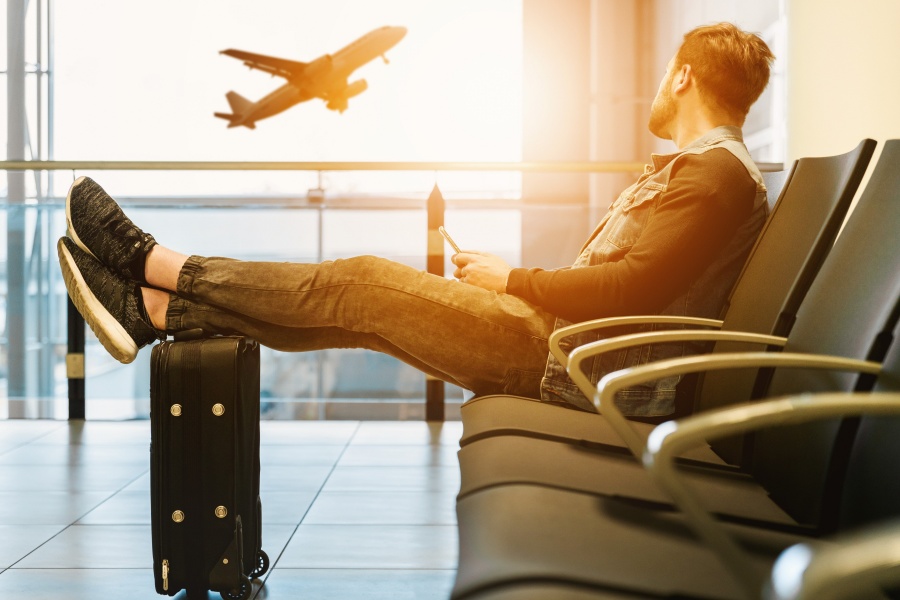
Prepare Ahead
Before you start your trip, it's a good idea to find out where the dental clinics are in the place you're going. That way, if you have a dental emergency, you'll know where to go for help. Also, think about seeing a dentist for a check-up before you travel. This will help take care of any dental problems you already have and reduce the chances of something going wrong while you're away. Don't forget to pack important dental stuff like toothbrushes, toothpaste, dental floss, and mouthwash.
Eat and Drink Healthy During Your Travel
Of course, you will eat fast food and drink local beverages when you’re travelling, but eating and drinking responsibly will have you thanking yourself later on. When traveling, there are some extra steps you can take to prevent dental emergencies. Chewing sugar-free gum after meals can stimulate saliva production and lower the risk of tooth decay.
It's also a good idea to moderate your alcohol intake, as excessive alcohol consumption can lead to dehydration and harm your oral health. You can read our post on the importance of drinking enough water for oral health for more information on this topic.
Handling Toothy Emergencies While Travelling
Dealing with dental issues while traveling can be stressful, but being prepared can make all the difference. Here are some tips for handling common toothy emergencies on the go:
Toothache
Although occasional toothaches may seem common, they can signal underlying problems like decay or infection. Make sure to pack an over-the-counter pain reliever to manage any discomfort. Opt for soft foods that require minimal chewing to ease the pain. Sleep with their pillow elevated to prevent blood from pooling in your head, which can worsen the throbbing sensation.
Broken/Cracked Tooth
Despite their strength, teeth can still chip or crack, especially when biting into hard foods or due to an injury. If you experience this, rinse your mouth with salt water to disinfect and reduce inflammation. You can use over-the-counter pain relievers and apply a cold compress to alleviate pain. Also, chew on the opposite side of your mouth to avoid aggravating the injury.
Travelling After Your Procedure in Turkey
Travelling after undergoing a dental treatment in Turkey can be a rewarding experience, but it's important to take proper care of your oral health during and after your trip.
After Teeth Whitening
Following a teeth whitening procedure Turkey, it's crucial to avoid consuming staining foods and beverages such as coffee, tea, and red wine for at least 48 hours. Stick to a white diet consisting of plain foods like chicken, rice, and yogurt to prevent discoloration. Additionally, avoid smoking and maintain good oral hygiene by brushing and flossing regularly. This way, you can avoid dental emergencies and recover quickly!
After Dental Implants
After receiving a tooth implant, it's crucial to follow your dentist's instructions carefully to promote proper healing and avoid emergencies. Avoid chewing on the implant site and stick to soft foods for the first few days. Be gentle when brushing and flossing around the implant area to prevent irritation. If you experience any swelling or discomfort, use an ice pack and take prescribed pain medication as directed.
What Should You Do After Your Smile Makeover?
When undergoing a smile makeover, which can include a range of cosmetic dental procedures like veneers or crowns, it's essential to take proactive steps to maintain the results, especially while traveling. One key aspect of preserving your new smile is to be mindful of the foods you consume. Avoid biting into hard or sticky foods that could potentially damage the dental work. Opt for softer options that are gentler on your teeth and dental enhancements.
Additionally, maintaining good oral hygiene practices is the key for the longevity of your smile makeover. Brushing and flossing regularly, particularly after meals, helps to remove food particles and plaque that can accumulate around dental restorations. Consider using a mouthwash recommended by your dentist to further enhance oral hygiene and keep your mouth feeling fresh and clean throughout your travels.
Staying hydrated is beneficial not only for your overall health but also for your oral health. Drinking plenty of water helps to wash away food debris and bacteria, reducing the risk of plaque buildup and tooth decay. Plus, staying hydrated can help alleviate dry mouth, which is a common side effect of travel and can contribute to oral discomfort.
Also, don't forget to schedule a follow-up appointment with your dentist after your travels. This allows them to assess the condition of your dental work and address any concerns or issues that may have arisen during your trip.
Don’t Forget to Make a Check List!
As you ready up for your travel, it's essential to create a checklist to help you prevent and manage dental emergencies while on the go. Make sure to pack all your dental essentials, such as toothbrushes, toothpaste, and dental floss, so you're ready for any unexpected situations.
Additionally, include any medications you may need and keep emergency contact information handy just in case. By staying prepared and following the tips provided in this guide, you can journey confidently, knowing you're equipped to handle any dental mishaps that come your way. Happy travels!


